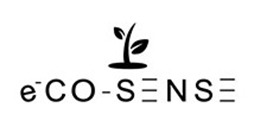With rising population levels and reduction in agricultural land, global food security is at risk. In developing economies, such as India, where agriculture takes up to 14% of the GDP, inefficiencies mean crop production is at 30% of maximum efficiency. So, we have to ask the question, how can we improve crop growth productivity?
There exists a field known as precision agriculture, where IoT-based sensors may be embedded into the soil and can provide data by wireless transmission back to farmers, so that they may make more informed decisions on how to better manage their soil health and therefore improve their crop yields. By taking into account metrics such as temperature, humidity, moisture and CO2 emissions, and cross-referencing with satellite data on crop and soil type from an API, we are able to provide recommendations on how to optimise soil health for farmers.
The next question is how do we power these sensors? Most use a battery or solar cell, which uses unsustainable materials or is intermittent. We use a biophotovoltaic cell. As plants and algae grow they can produce electricity by photosynthesis, and this energy can be used to power low-powered sensing kits such as the one we are developing, making this a seamless system made to be embedded in agricultural fields.
Our mission is simple: to empower farmers through information technology.


